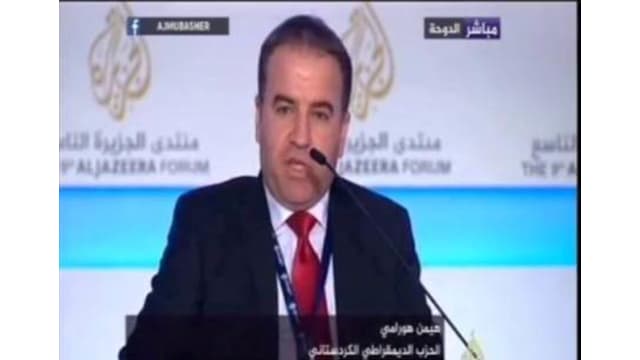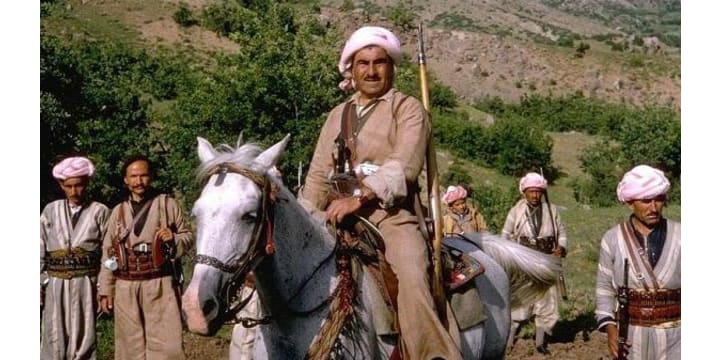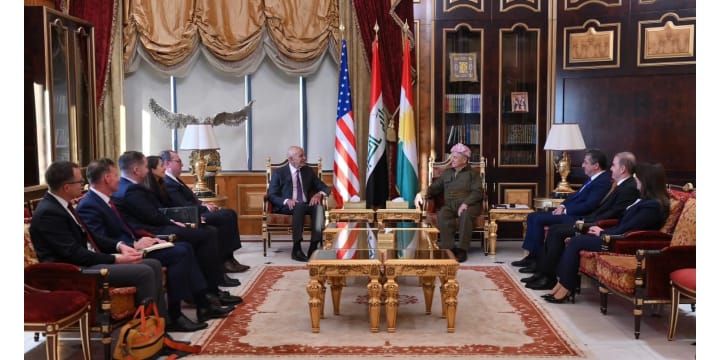
Hawrami: Iraq is now a country, which is divided in three regions of Shiites, Sunnis and Kurds, so you have to find a new formula that we can live in a democratic and peaceful coexistence.
Transcript of Hemin Hawrami’s speech delivered at the 9th al-Jazeera forum in Doha from 4-6 May 2015.
“Thank you very much for the invitation and I hope after a great lunch we have all the appetite for talking and for you all to listen.
As you correctly mentioned, I am from the Halabja area, so, I still remember the smell of the chemical bombardment and we will always, as the Kurds, have been asking why? What have we done? Why should we be treated like that? What’s the source of conflict? And, what are the causes of it? How it’s manifested and what are the repercussions as you correctly the title the session?
If you look at the micro level of the situation in the Middle East, we do believe that part of the causes is related to the political map of the Middle East which is not reflecting the reality of the Middle East. After the Sykes-Picot [agreement] the borders, the external interventions and the dynamics in the Middle East has not been reflecting the realities of the people in the Middle East.
The second cause as though we look at this from the Kurdistan’s perspective is the lack of democracy and co-existence. When we talk about democracy we talk about the culture of democracy and also the mechanisms of democracy and co-existence for example, in Iraq, we as the Kurds, we have representation but can we say that we have the power sharing in Iraq? The same for the Sunni brothers in Iraq it’s the same. So, there is representation but there is no power sharing in the situation there.
Another issue is the counter of revenge and retaliation. I will give you just a small example that the chemical bombardment in Halabja happened in 1988, we made the uprising in 1991 and we liberated our areas. We have fifty thousand Iraqi soldiers. We did not retaliate against any Iraqi soldier, who fell in our hands after 2003 and revenge is what prevails in Iraq, and fear also runs these dynamics.
Also, there is no Iraqi identity, where honestly it is now an identity Shiite and Sunni, and in Kurdistan we have Kurdish identity. Another mystery to target our areas is linked to structural crisis if we consider that the state of Iraq failed, had bad governance and the absence of institutions and dependence on oil is the main source of income, and this all led to what we are saying now, in addition to how historical crisis embodies this.
What we are going through now is a messy transformation of the Middle East, changes on borders and across the border; it adjusts the case of failure. There are areas under the control of ISIS in Iraq also in Syria, and the demographics changed and the monopoly that the use of force is no longer the preserve of the State alone.
Look at militias in Baghdad, there are 48 different militias, and then who controls the use of power? The government does not, of course, also for the advancement of members of this state which is not reflected in the current conflict against terrorism, and capabilities in various formats that ISIS are terrorists and a unique phenomenon, but they have weapons from Syria and the Iraqi army. It is true, we lost 1200 of Kurdistan’s Peshmerga forces who had sacrificed their lives for the restoration of areas occupied by ISIS and they are a terrorist organisation that occupies areas in Syria and Iraq more than the size of Jordan, also has a lot of money, and they opened a five-star hotel in Nineveh, this is a terrorist organisation of a unique type.
What we are seeing now is attracting geopolitics in the Middle East and our internal events no longer remain outside, and for this reason that embodies this conflict I'll tell you this, but through what we see and feel and what we contemplate that in Iraq and Kurdistan is terrorism and extremism, sectarian violence and it is incited plotting.
What are the implications of that? And yes I think based on these grounds and embodiments, it will inevitably result in chaotic revenge and also the following address is an era of uncertainty.
What is certainly not known, therefore there is a state of uncertainty which prevails in the midst of all these events, and what is next will need to defeat state regulation and otherwise the situation in Syria and Iraq without defeating the State.
And destroy them, there will be no stability and development, but how we win and destroy them by militias or through the national army and the question will run after ISIS of these areas? This is a big question to our brothers the Sunnis, or they’ll ask us how we managed the situation there. There for is part of the solution to recognize and acknowledge reality and find a solution as my colleague Lina said to find a new formula of peaceful coexistence in Iraq that fits us.
Iraq is now a country, which is divided in three regions of Shiites, Sunnis and Kurds, so you have to find a new formula that we can live in a democratic and peaceful coexistence.
With that said, in fact the Middle East in the process of re-form, the old Middle East has gone, we do not know when it’ll be reborn but we will generate a new kind of border, and a new type of players and dynamics, states were not the only player in the Middle East, there are individuals and groups of organizations and civil society players, and I would say the Kurds and the Iraqi Kurdistan we have a role in the re-formation of this region, and if we consider the Kurdish relations with Syria and Iraq and our influence in Turkey and our relationship with both these countries, Kurdistan is the effective player and always we will be the solution and not the problem of a penalty. Thank you

